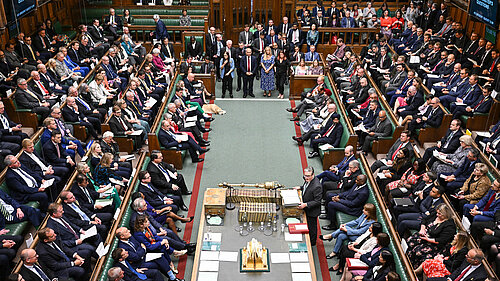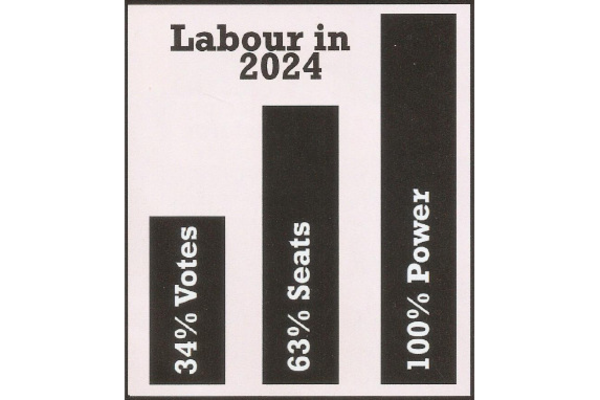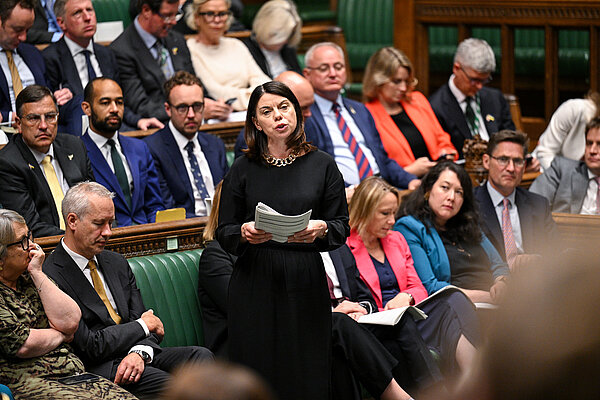The Need For Electoral Reform

I’ve been voting in General and Local elections for 55 years and I haven’t yet cast a vote that counted. In the bad old days, when I voted on the ‘dark side’, I was living in a Labour fortress. Since I’ve come towards the light and voted Liberal Democrat I’ve been living in a different Labour fortress.
The First Past the Post (FPTP) system, currently in use, is touted by its supporters as a provider of stable government, offering an easily understood system that delivers, in most cases, a clear winner in the 2-party system. As a member of the third largest party, I reject that opinion.
News Flash! We no longer have a 2-party system. The different elections we’ve held across the country over the past 12 months repeatedly show five parties with significant voter support.
As to the ‘stable government’ argument, the 14-year Conservative administration gave us 5 Prime Ministers, 7 Chancellors of the Exchequer, and 8 Home Secretaries. Clearly, the word ‘stable’ was doing a lot of heavy lifting, with the revolving door doing most of the work!
There are those that would have you believe we’ve already discarded the idea of Proportional Representation (PR) forever with the result of the ill-fated 2011 referendum on adopting the Alternative Vote (AV) system. I suspect that the Venn diagram linking the idea that referendum results are permanent (see also Brexit) and the recent fruitless campaign to overturn the result of the last General Election is a single circle.
In the 2024 General Election, Labour gained a big enough majority to virtually guarantee 100% of the power all of the time from only 34% of the votes. It meant 66% of all votes cast had no impact on the result. Only 96 of the 650 MPs were elected on 50% or more of the vote. Because of this unfair system, many people were lending their votes to parties they wouldn’t normally support. I’m sure most people would rather vote for a party they want to support rather than against a party they don’t.
In any debate on PR, the thorny question of which voting system to use comes up. Currently, the UK uses some forms of PR in certain national and regional elections:
- Single Transferable Vote (STV) is used for Scottish local elections and will be used in Wales in the future. It has also been used in Northern Ireland, other than in General Elections, since independence.
- Mixed Member Proportional (MMP), or Additional Member System (AMS), is used for Scottish Parliamentary and Greater London Assembly elections and was used for the Welsh Senedd.
- List Proportional Representation (LPR) will be used by the Senedd from 2026 and was used for the UK’s European Parliament elections.
Other systems and variations of these PR voting systems are used around Europe.

A new political push for wider use of PR in the UK came from the Liberal Democrats for Electoral Reform (LDER) President Sarah Olney. Using the Private Members' (Ten Minute Rule) Bill, she introduced the Elections (Proportional Representation) Bill in January 2025, which resulted in a historic vote in favour of the principle. This led to a further useful debate in the House of Commons and a general up-tick in discussion of the subject.
A stumbling block has been the reluctance of the Labour leadership to commit to change, despite admitting to the fact that the current system is broken and an increasing groundswell of support for PR from their membership.
The good news is that the All Party Parliamentary Group (APPG) for Fair Elections is now the biggest APPG in the house. It has a Labour Chair and Liberal Democrat, Green and Conservative Vice-chairs. The current membership is made up of 85 Labour, 53 Liberal Democrat, 5 SNP, 6 Green, 2 Plaid Cymru, 1 Independent and 1 Conservative, one of the Vice-Chairs.
These factors, plus widespread realisation of the faults in the current system brought about by the 2024 election have, in my opinion, advanced the push for a change helped by the work of organisations such as LDER, Make Votes Matter and the Electoral Reform Society.

The APPG for Fair Elections have recently published their Terms of Reference for the establishment of a National Commission on Electoral Reform and the Government’s Devolution Bill includes a change in the voting system for mayors and Police and Crime Commissioners from FPTP to a PR system, so things are progressing in the right direction.
It’s incumbent on all of us who want to see a fairer and more representative political system to keep the need for electoral reform firmly in the spotlight.
Alan Jones is a local Liberal Democrat Campaigner in Higham Hill and the Data Officer for Waltham Forest Liberal Democrats